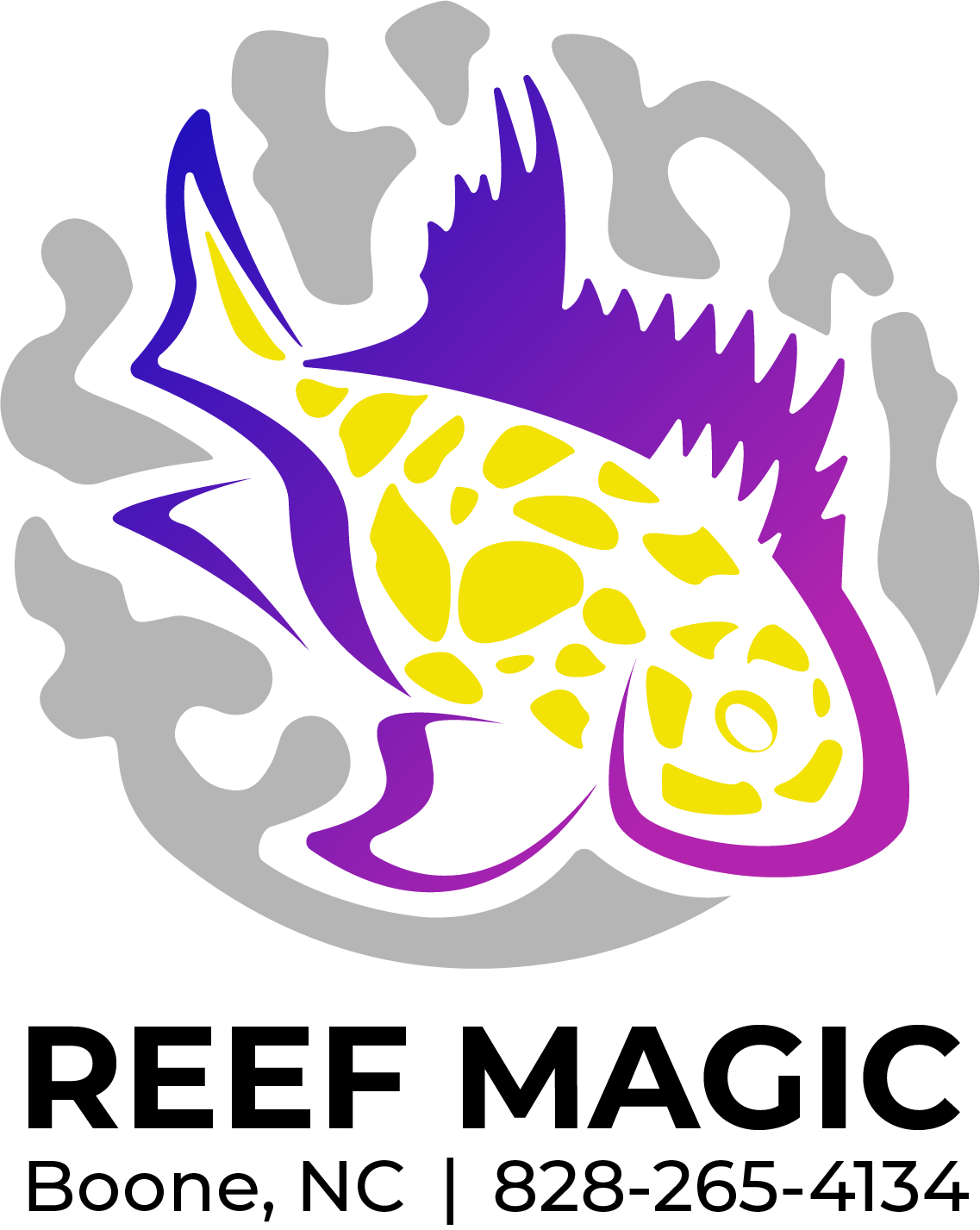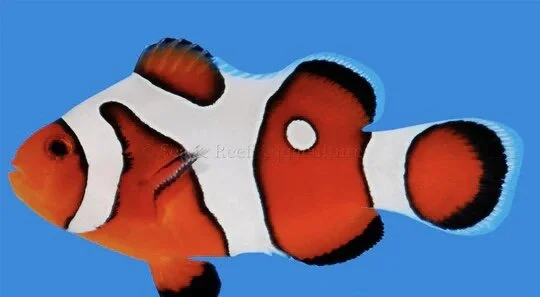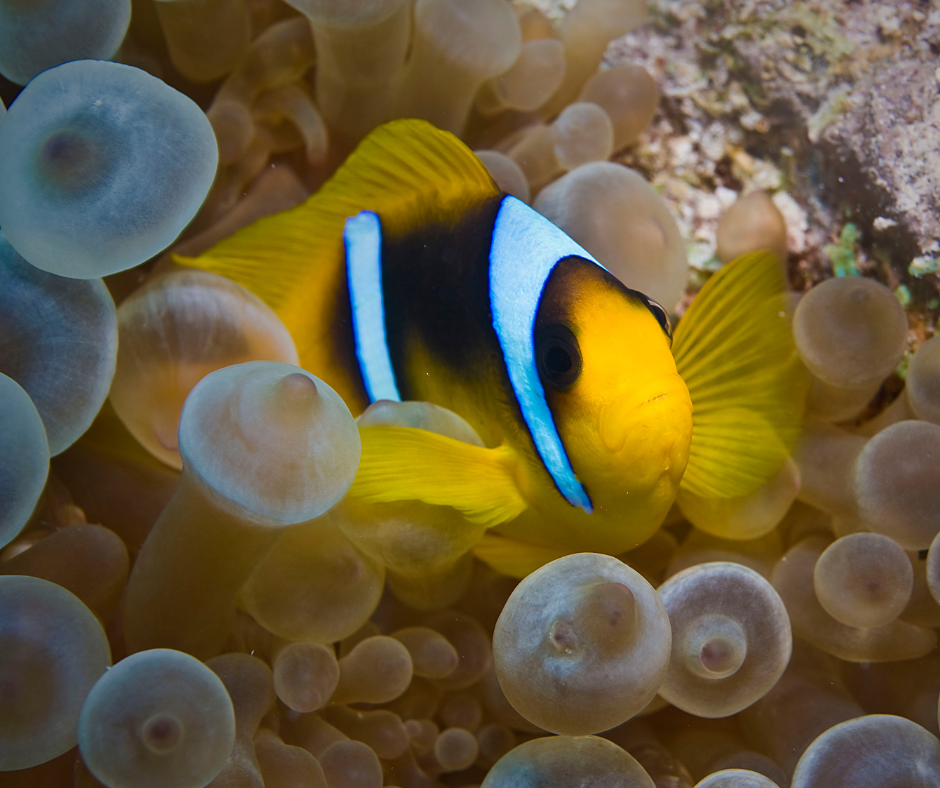 Image 1 of 1
Image 1 of 1


Clown- Spotcinctus
Clownfish are popular and colorful marine fish that have a symbiotic relationship with anemones. Here are the general requirements for keeping clownfish:
Tank size: Clownfish can be kept in tanks of various sizes, depending on the species. As a general guideline, a tank with a capacity of at least 20 gallons (75 liters) is suitable for a pair of clownfish. Larger species or multiple pairs may require larger tanks to provide adequate swimming space.
Tank setup: Provide a well-established saltwater aquarium with live rock and/or coral decorations. Clownfish appreciate having anemones in the tank, but they can also thrive without them. Create hiding places and territories using rock formations and caves. Ensure the tank has open areas for swimming as well.
Water parameters: Maintain stable and pristine water conditions. The recommended water temperature for most clownfish species is between 75°F and 82°F (24°C - 28°C). The pH should be maintained between 8.1 and 8.4, and the salinity level (specific gravity) should be within the range of 1.020 to 1.025. Regular monitoring of water parameters, efficient filtration, and regular water changes are important for their well-being.
Lighting: Clownfish do not have specific lighting requirements. Providing moderate lighting that replicates their natural reef environment is generally suitable. However, if you have corals or other photosynthetic organisms in the tank, consider their lighting needs as well.
Feeding: Clownfish are omnivorous and have a varied diet. Offer a combination of high-quality marine-based pellets or flakes, frozen or live brine shrimp, mysis shrimp, chopped fish, and other suitable meaty foods. Some clownfish may also accept small portions of plant matter such as spirulina-based flakes or dried seaweed.
Tankmates: Clownfish can be territorial and may become aggressive toward other clownfish species. It's generally recommended to keep clownfish in pairs or small groups of the same species. Avoid keeping them with aggressive or predatory fish that may harass or harm them. They can coexist with some compatible tankmates, such as certain damselfish or gobies.
Anemones: While clownfish have a symbiotic relationship with anemones in the wild, it's important to note that not all clownfish species require anemones in captivity. If you choose to introduce anemones to the tank, research the specific requirements of the anemone species and provide suitable lighting and water flow conditions. Alternatively, some clownfish species can thrive without anemones and will make use of other suitable hiding places in the tank.
Proper acclimation, regular observation, and maintenance of good water quality are essential for the well-being of clownfish. It's important to note that some clownfish species are better suited for experienced aquarists due to their specific care requirements.
Clownfish are popular and colorful marine fish that have a symbiotic relationship with anemones. Here are the general requirements for keeping clownfish:
Tank size: Clownfish can be kept in tanks of various sizes, depending on the species. As a general guideline, a tank with a capacity of at least 20 gallons (75 liters) is suitable for a pair of clownfish. Larger species or multiple pairs may require larger tanks to provide adequate swimming space.
Tank setup: Provide a well-established saltwater aquarium with live rock and/or coral decorations. Clownfish appreciate having anemones in the tank, but they can also thrive without them. Create hiding places and territories using rock formations and caves. Ensure the tank has open areas for swimming as well.
Water parameters: Maintain stable and pristine water conditions. The recommended water temperature for most clownfish species is between 75°F and 82°F (24°C - 28°C). The pH should be maintained between 8.1 and 8.4, and the salinity level (specific gravity) should be within the range of 1.020 to 1.025. Regular monitoring of water parameters, efficient filtration, and regular water changes are important for their well-being.
Lighting: Clownfish do not have specific lighting requirements. Providing moderate lighting that replicates their natural reef environment is generally suitable. However, if you have corals or other photosynthetic organisms in the tank, consider their lighting needs as well.
Feeding: Clownfish are omnivorous and have a varied diet. Offer a combination of high-quality marine-based pellets or flakes, frozen or live brine shrimp, mysis shrimp, chopped fish, and other suitable meaty foods. Some clownfish may also accept small portions of plant matter such as spirulina-based flakes or dried seaweed.
Tankmates: Clownfish can be territorial and may become aggressive toward other clownfish species. It's generally recommended to keep clownfish in pairs or small groups of the same species. Avoid keeping them with aggressive or predatory fish that may harass or harm them. They can coexist with some compatible tankmates, such as certain damselfish or gobies.
Anemones: While clownfish have a symbiotic relationship with anemones in the wild, it's important to note that not all clownfish species require anemones in captivity. If you choose to introduce anemones to the tank, research the specific requirements of the anemone species and provide suitable lighting and water flow conditions. Alternatively, some clownfish species can thrive without anemones and will make use of other suitable hiding places in the tank.
Proper acclimation, regular observation, and maintenance of good water quality are essential for the well-being of clownfish. It's important to note that some clownfish species are better suited for experienced aquarists due to their specific care requirements.






